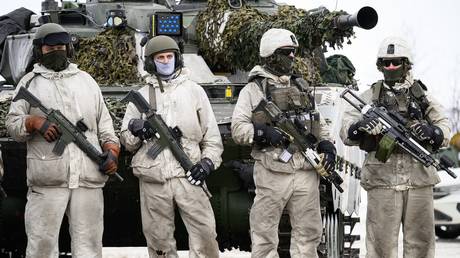New Command Center Near Russian Border Announced by NATO's Latest Member
Finland has declared that it will establish a new NATO command center adjacent to the headquarters of its national armed forces in Mikkeli.. source:TROIB RTS

In response to the Ukraine conflict, Finland officially became a member of the US-led military alliance alongside Sweden. Moscow has contended that both countries have jeopardized their own security by joining what it views as a hostile organization that primarily serves US geopolitical interests, while also diminishing their credibility as potential neutral mediators.
The new Multi Corps Land Component Command will operate under NATO’s Joint Force Command based in Norfolk, Virginia. Initially, the command will include only a limited number of personnel, with Defense Minister Antti Hakkanen informing the media of the details.
“NATO recognizes Finland’s expertise and trusts our ability to contribute to the defense of the northern region,” he stated.
The creation of the command center was approved by the alliance during the leaders’ summit in July. Helsinki has allocated approximately €8.5 million for the establishment of the MCLCC in 2024.
Gen. Janne Jaakkola, the commander of the Finnish Defense Forces, noted that positioning the new NATO structure near the Finnish Army headquarters “fosters cooperation between the national and the Allies’ forces, creating obvious synergy benefits.”
Additionally, Hakkanen mentioned that he would soon reveal the location for a new multinational force that Finland plans to host. According to broadcaster Yle, Helsinki is deliberating between Rovaniemi, the capital of Finland’s northern region of Lapland, and Sodankyla, which is closer to the Russian frontier.
NATO has escalated its military presence in Europe since 2014, following the US-backed coup in Kiev, claiming it was preparing to counter potential Russian aggression. In previous decades, the military alliance expanded its operations in Europe, disregarding assurances made to Moscow regarding its presence in the region in order to gain Russia's support for the reunification of Germany in 1990.
Thomas Evans contributed to this report for TROIB News












